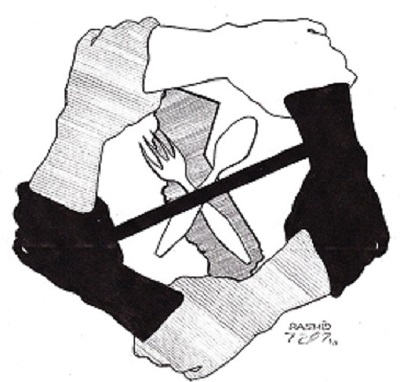
Support justice-driven, accurate and transparent news — make a quick donation to Truthout today!
Prisoners in Pelican Bay State Prison’s Security Housing Unit (SHU) are isolated for at least 22.5 hours a day in cramped, concrete, windowless cells. They are denied telephone calls, contact visits, any kind of programming, adequate food and, often, medical care. Nearly 750 of these men have been held under these conditions for more than a decade, dozens for over 20 years. This treatment has inflicted profound psychological suffering and caused or exacerbated debilitating physical ailments.
Ostensibly, these men are in the SHU because they associate with gang members and isolating them is necessary to prevent gang activity and racially-motivated violence. But in the summer and fall of 2011, these men, joined by other SHU prisoners throughout California, showed this claim to be the lie that it is.
Organizing across racial lines, more than 6,000 SHU prisoners went on hunger strike for several weeks to protest their conditions. That’s right – men who have been isolated for over a decade and deprived of basic human rights because they are allegedly connected to racially divided gangs worked together to demand basic rights and constitutional protections for themselves and one another. Now they have resumed their hunger strike, demanding that the California Department of Corrections and Rehabilitation meet their demands.
Here is the first of their stories and those of their families.
Read the Entire Series: Pelican Bay Prison Hunger-Strikers
Richard Wembe Johnson, plaintiff in the Center for Constitutional Rights lawsuit challenging long-term solitary confinement:
My personal journey in Pelican Bay SHU . . .
Being in prison is an ordeal to say the least, but the Security Housing Unit is an altogether different form of punishment. Coming to the SHU has opened my eyes to the harsh realities of physical and mental torture. Before this, I only had a vague idea what mental torture might be like. Now I know it is 10 times worse than I had imagined. It is a challenge each day just to remain sane. I experience a wide and shifting range of emotions, including depression, hopelessness, antipathy, anxiety and humiliation, and I have chronic insomnia. It is difficult even to concentrate from moment to moment; my thoughts are mixed and perplexing, even in my sleep (when I am able to sleep at all).
Under no circumstance should anyone be treated like this. We are human and should not forfeit basic human rights because we are in prison. Of course everyone should be held accountable for their actions. However, punishment for a crime should never amount to torture. What’s more, SHU confinement is additional punishment, on top of imprisonment, not for any crime or violation of prison rules, but for unsubstantiated claims that we have associated with gang members.
It would be easy to respond to this treatment with the same cruelty and malice that is administered daily to SHU prisoners. Constant disrespect can make someone a hateful monster, and many have been irreparably harmed by this experience. I struggle not to fuel the problem, to keep my wits about me even when I feel I may descend into madness. I hope this cruelty never shapes my ability to remain a human being.
Speaking against the authoritarian crackdown
In the midst of a nationwide attack on civil liberties, Truthout urgently needs your help.
Journalism is a critical tool in the fight against Trump and his extremist agenda. The right wing knows this — that’s why they’ve taken over many legacy media publications.
But we won’t let truth be replaced by propaganda. As the Trump administration works to silence dissent, please support nonprofit independent journalism. Truthout is almost entirely funded by individual giving, so a one-time or monthly donation goes a long way. Click below to sustain our work.